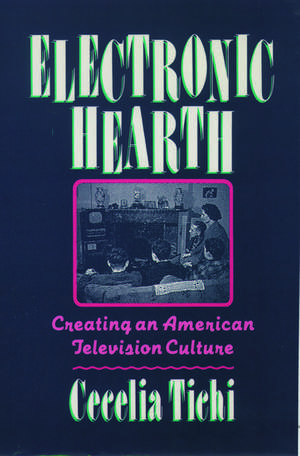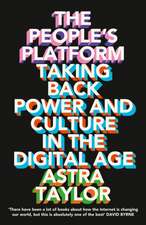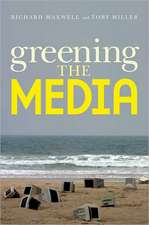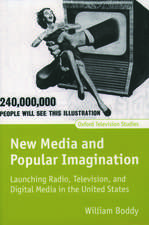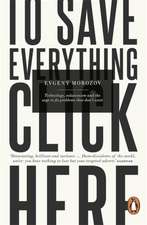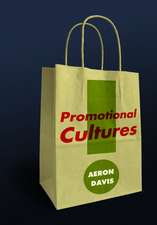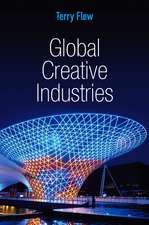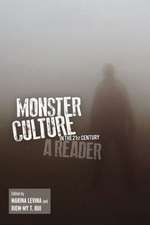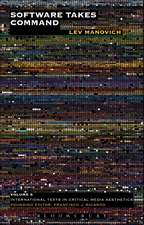Electronic Hearth: Creating an American Television Culture
Autor Cecelia Tichien Limba Engleză Paperback – 22 apr 1993
Preț: 125.40 lei
Preț vechi: 143.41 lei
-13% Nou
Puncte Express: 188
Preț estimativ în valută:
24.00€ • 26.08$ • 20.18£
24.00€ • 26.08$ • 20.18£
Carte tipărită la comandă
Livrare economică 09-15 aprilie
Preluare comenzi: 021 569.72.76
Specificații
ISBN-13: 9780195079142
ISBN-10: 0195079140
Pagini: 272
Ilustrații: 20 halftones, 30 line drawings
Dimensiuni: 233 x 156 x 16 mm
Greutate: 0.39 kg
Editura: Oxford University Press
Colecția OUP USA
Locul publicării:New York, United States
ISBN-10: 0195079140
Pagini: 272
Ilustrații: 20 halftones, 30 line drawings
Dimensiuni: 233 x 156 x 16 mm
Greutate: 0.39 kg
Editura: Oxford University Press
Colecția OUP USA
Locul publicării:New York, United States
Recenzii
"A good, readable text. Should be attractive to students....Excellent reference list."--William H. Young, Lynchburg College
"Perceptive, subtly nuanced study of how Americans' perceptions of TV have developed over the past five decades....Tichi takes a close look at the often maligned, frequently misinterpreted medium....Her thinking is original, her arguments convincing. Fresh and fascinating."--Kirkus Reviews
"This sophisticated, McLuhanesque study bristles with fresh insight."--Publisher's Weekly
"Truly an ambitious study. Tichi refreshingly pokes fun at the intellectual snobbery that blanket-condems the medium."--Library Journal
"Very good for courses on the history of broadcasting and cutlural studies."--J.D. Peters, University of Iowa
"Perceptive, subtly nuanced study of how Americans' perceptions of TV have developed over the past five decades....Tichi takes a close look at the often maligned, frequently misinterpreted medium....Her thinking is original, her arguments convincing. Fresh and fascinating."--Kirkus Reviews
"This sophisticated, McLuhanesque study bristles with fresh insight."--Publisher's Weekly
"Truly an ambitious study. Tichi refreshingly pokes fun at the intellectual snobbery that blanket-condems the medium."--Library Journal
"Very good for courses on the history of broadcasting and cutlural studies."--J.D. Peters, University of Iowa
Notă biografică
About the Author: Cecelia Tichi is William R. Kenan, Jr., Professor of English at Vanderbilt University. She is the author of Shifting Gears: Technology, Literature, and Culture in Modernist America and New World, New Earth: Environmental Reform in American Literature from Puritans to Whitman.
